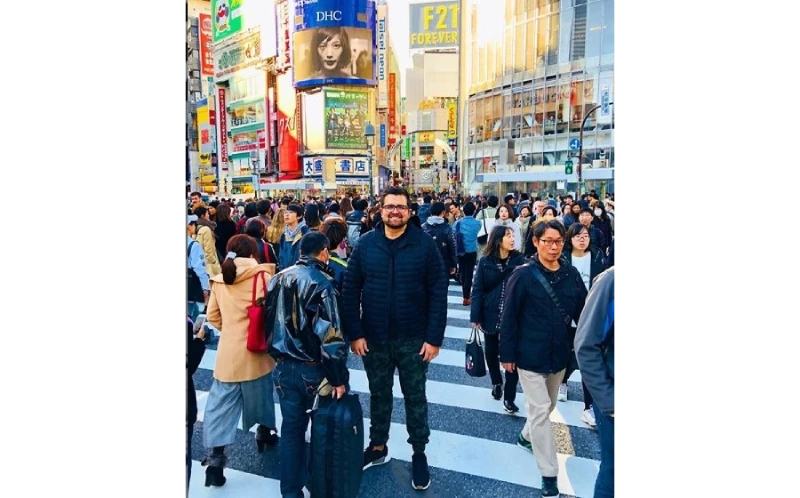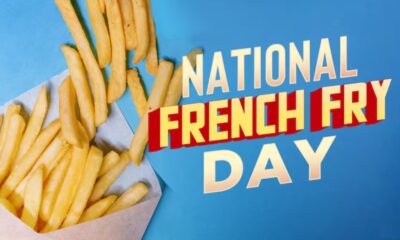Business
Chase Norton talks about being an entrepreneur

In 2007, Chase Norton came across a water crisis charitable foundation online based on the east coast. Norton was deeply affected after learning about the worldwide water crisis and seeing pictures of the billions of people who do not have access to clean drinking water. Growing up in a neighborhood of Newport Beach, drinking VOSS, Smart Water, Fiji and Acqua Panna was an everyday occurrence. Norton wanted to create a premium, consumer goods brand of bottled water delivery service that by its substantially higher price point would help build wells for people in third world countries who do not have access to clean drinking water. The water delivered is in fact described as “ultra pure”: MEND water goes through a rigorous 11 hour, 13 step purification process. It is tested, retested and recorded along each step of the way. Norton started MEND after quitting his job as a Series 7 Licensee Bond Broker for Finance 500.
The company is now delivering to all of Southern California and has a clientele that includes athletes, celebrities, high-profile executives, doctors, wellness centers, health-conscious families and more. With the right choices, we can make both our bodies and the world a healthier place to live in.
Bottled water has become a $4-billion-a-year industry in the U.S., according to the Natural Resources Defense Council (NRDC). The organization estimates that people spend 240 to 10,000 times more per gallon of bottled water than tap. Dietician Robin Kaiden says many in the medical community question whether bottled water can be bad for us, as it’s contained in plastic that may leak into the water if left in the heat. Drinking tap instead will save you about $200 a year, and if you’re still concerned, a basic faucet filtration will save you $150.
Bottled water is America’s most popular beverage category by volume. In recent years, sales of bottled water have surpassed those of carbonated soft drinks, and companies are increasingly seeking ways to add value to bottled water through flavorings, fortification and other price-altering attributes.
The federal government helpfully defines “bottled water” as water sealed in bottles or other containers without added ingredients. As additional water beverages enter the market, the FDA must determine how these new products will be regulated. Applying common sense, the regulations contemplate “bottled water” as an ingredient of “flavored bottled water.” The regulations apply when the term “water” is highlighted on the water beverage’s label. A carve-out to this general rule is that FDA considers soda water, tonic water, seltzer, and water with added carbonation as soft drinks, rather than as “bottled water.”
The FDA regulates bottled water as a food and imposes national safety and labeling requirements. Bottled waters need to pass safety requirements, particularly compliance with good manufacturing practices.
-

 Sports4 weeks ago
Sports4 weeks agoAl Ahly vs Inter Miami, 2025 FIFA Club World Cup – Preview, Prediction, Predicted Lineups and How to Watch
-
Health3 weeks ago
Back to Roots: Ayurveda Offers Natural Cure for Common Hair Woes
-

 Tech3 weeks ago
Tech3 weeks agoFrom Soil to Silicon: The Rise of Agriculture AI and Drone Innovations in 2025
-

 Startup4 weeks ago
Startup4 weeks agoHow Instagram Is Driving Global Social Media Marketing Trends
-

 Sports3 weeks ago
Sports3 weeks agoFIBA 3×3 World Cup 2025: Full Schedule, Preview, and How to Watch
-

 Science4 days ago
Science4 days agoJuly Full Moon 2025: Everything You Should Need to Know, When and Where to See Buck Moon
-

 Gadget3 weeks ago
Gadget3 weeks agoThings to Know about Samsung Galaxy S26: What’s New and What’s Next
-

 Sports4 weeks ago
Sports4 weeks agoWorld Judo Championships 2025: Full Schedule, Date, Time, Key Athletes and How to Watch













